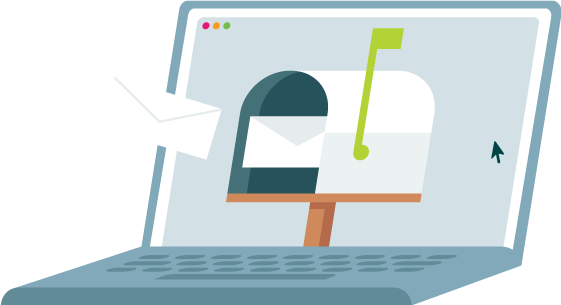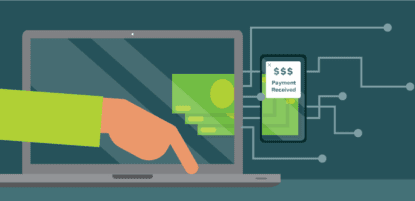Non-profit healthcare organizations provide critical care and support to those who need it most. However, sustaining those services requires careful financial management to ensure long-term stability.
That task comes with unique challenges. Unlike for-profit practices that prioritize profitability, non-profits must navigate funding restrictions while ensuring every grant, donation, and revenue source is allocated accurately. A single misstep in tracking funds can lead to audit complications or even jeopardize funding, putting essential healthcare programs at risk. Limited staff, tight budgets, and reliance on manual processes make it even harder to keep up with these requirements.
That’s why it’s essential for healthcare organizations to use accounting software that’s tailored to their specific priorities. The right solution streamlines financial operations, helping non-profits allocate funds efficiently, meet compliance requirements without added complexity, and gain greater cash flow visibility.
Key takeaways
- Non-profit healthcare organizations face distinct financial challenges that require specialized accounting solutions.
- Different types of accounting software, from enterprise resource planning (ERP) systems to accounts payable (AP) automation solutions, cater to specific financial needs within an organization.
- MineralTree’s AP automation solution helps non-profit healthcare organizations streamline financial workflows while reducing costs, supporting compliance, and integrating with other key financial systems.
What is healthcare accounting software?
Healthcare accounting requires specialized financial management tools designed to meet the unique needs of non-profit healthcare organizations. Healthcare accounting software streamlines financial operations by automating key processes like payment processing, revenue tracking, vendor payments, and reconciliation, helping staff operate more efficiently.
Beyond day-to-day financial management, these platforms play a critical role in regulatory compliance. Many solutions support compliance with regulations such as the Health Insurance Portability and Accountability Act (HIPAA) by improving reporting capabilities and audit preparedness.
For non-profit healthcare providers, accounting software also simplifies grant reporting and donor tracking, reducing administrative workload and ensuringes funds are allocated accurately.
What are some of the common AP challenges that non-profit healthcare organizations face?
Non-profit healthcare organizations face several challenges when managing AP, including:
- Limited resources: Many non-profits operate with lean finance teams and tight budgets, making it difficult to keep up with growing payment volumes.
- Manual processing: Paper-based invoicing and manual data entry slow down AP operations and complicate healthcare payment processing. Manual payment processing also increases the risk of errors, lost documents, and late payments, which can strain vendor relationships.
- Fraud risk: Limited staffing and reliance on manual processes make it harder to maintain financial oversight, increasing vulnerability to payment fraud. Without the proper internal controls, organizations are at greater risk of fraud, such as payment tampering and phishing schemes that manipulate staff into processing fraudulent transactions.
- Compliance: Non-profit healthcare providers must navigate complex regulatory requirements to avoid noncompliance and the associated fines. This includes adherence to HIPAA for patient data security, IRS 990 reporting for tax-exempt status, and grant compliance requirements that dictate how organizations allocate and report funds.
- Lack of visibility: Without real-time access to financial data, AP teams may struggle to track expenses and monitor cash flow. This makes it difficult to anticipate funding shortfalls and optimize cash flow, impacting financial stability.
5 types of accounting software for non-profit healthcare
Non-profit healthcare organizations have access to various types of accounting software solutions, each designed to address specific financial management needs and improve efficiency.
Here are the most common types:
- Enterprise resource planning (ERP) systems
- Human capital management (HCM) software
- AP automation solutions
- Donor and grant management software
- Financial planning tools
1. ERP systems
ERP systems unify an organization’s financial and operational processes, providing a comprehensive view of its finances. Non-profit healthcare organizations benefit from ERP systems by allowing them to centralize financial data, monitor expenditures, and maintain compliance by ensuring financial processes align with healthcare standards.
Solutions with built-in budgeting and forecasting tools help organizations anticipate future funding needs and allocate resources more effectively. Additionally, ERP solutions that integrate with other key systems — like payroll and AP automation — can significantly streamline financial operations and boost reporting accuracy.
2. HCM software
Workforce management in non-profit healthcare organizations can be complex due to staff turnover and evolving regulatory requirements. HCM software automates payroll processing to ensure employees are paid accurately and on time while staying compliant with tax regulations.
HCM platforms also simplify benefits administration, enabling HR teams to manage health plans and paid leave policies more effectively. Additionally, solutions that offer workforce analytics allow teams to make data-driven staffing decisions that align with their budgetary constraints and operational needs.
3. AP automation solutions
Managing AP for healthcare facilities creates unnecessary friction when done manually, often leading to processing delays and compliance risks. And the value of AP automation for healthcare organizations is clearer than ever. AP automation replaces slow, paper-based workflows with intelligent invoice digitization, automated approval routing, and seamless electronic payments like virtual cards.
Additionally, AP automation solutions integrate with advanced fraud prevention mechanisms like multi-factor authentication and anomaly detection, helping organizations safeguard transactions. Solutions that integrate with ERP and accounting systems also enhance visibility into cash flow and improve data synchronization, which enables organizations to optimize working capital and ensure timely payments.
4. Donor and grant management software
Non-profits rely on diverse funding sources that require specialized solutions to manage. Donor and grant management software helps these organizations track and categorize donations, ensuring funds are used in accordance with donor restrictions and grant stipulations.
Automated reporting tools also simplify financial disclosures, making it easier to provide transparent documentation to stakeholders and regulatory bodies. Systems with integrated communication tools can also help strengthen donor relationships through personalized engagement strategies.
5. Financial planning tools
Budgeting and financial planning tools help non-profit healthcare organizations maintain financial stability by enabling cash flow forecasting, which helps anticipate funding gaps and allocate resources effectively.
Robust financial planning tools provide detailed expense tracking, allowing organizations to monitor spending and adhere to budget constraints. Fund allocation management features also help non-profits distribute financial resources efficiently across different programs and initiatives, ensuring compliance with donor and grant requirements.
What key features to look for when evaluating accounting software
When selecting accounting software, non-profit healthcare organizations should consider the following factors to ensure their investment meets their financial and operational needs:
- Scalability
- Compliance
- Reporting
- Traceability
- Integration
Scalability
As organizations grow, their financial management needs become more complex. Accounting software must be able to handle increasing transaction volumes and support expanding teams — without creating inefficiencies.
Did you know? MineralTree’s AP automation scales with your organization, handling increasing invoice volumes without added administrative burden.
Compliance
Non-profit healthcare organizations must adhere to industry-specific financial regulations, including HIPAA and grant compliance requirements. Failure to comply can lead to fines, legal issues, or even loss of funding. That’s why these organizations need tailored accounting solutions that maintain audit readiness and simplify regulatory filings.
Did you know? MineralTree’s built-in compliance features help non-profit healthcare organizations stay audit-ready and meet compliance requirements by providing automated record-keeping, secure payment processing, and detailed audit trails.
Reporting
Accurate financial reporting is crucial for transparency and decision-making, especially for non-profit healthcare organizations that have to track program spending and diverse funding sources. Without reliable reporting tools that account for these unique needs, organizations risk financial mismanagement and decreased trust from donors and stakeholders.
Did you know? MineralTree provides real-time reporting dashboards that enhance financial visibility, making it easier for teams to generate accurate reports and track expenses.
Traceability
Organizations need clear audit trails for every transaction to ensure accountability and prevent financial discrepancies. Traceability is particularly important for non-profit healthcare organizations that have to track donor-restricted funds and grants.
Did you know? MineralTree’s automated audit logs help healthcare non-profits maintain detailed financial records, making sure every transaction is easily traceable and audit-ready.
Integration
Seamless integration with existing financial systems ensures smooth operations and eliminates the need for redundant, manual data entry. Many non-profit healthcare organizations rely on multiple financial tools, including ERPs and donor management platforms. Without adequate integration, financial data can become siloed, causing inefficiencies and errors.
Did you know? MineralTree integrates with leading ERPs and accounting platforms, reducing manual data entry and errors while ensuring a streamlined financial workflow.
How MineralTree’s AP automation solution can help you maintain an efficient healthcare practice
Managing finances for your non-profit healthcare organization shouldn’t mean spending hours buried in paperwork, chasing approvals, or manually reconciling payments.
Automating AP in healthcare simplifies these tasks, reducing administrative strain while enhancing financial accuracy. MineralTree streamlines AP management with end-to-end automation, minimizing human error, accelerating payment cycles, and ensuring compliance with industry regulations. With advanced security features and seamless ERP integration, MineralTree enables healthcare finance teams to work more efficiently while maintaining financial integrity.
Schedule a demo today to see how MineralTree can transform your AP processes.

FAQs on the best accounting software for non-profit healthcare organizations
Short on time? Check out the frequently asked questions below for a quick overview of essential insights on accounting software for non-profit healthcare organizations.
1. How does non-profit accounting differ from for-profit accounting?
Unlike for-profit businesses that prioritize profitability and shareholder returns, non-profit healthcare organizations must demonstrate accountability in how funds are allocated and spent to maintain their tax-exempt status. Non-profit accounting focuses on tracking restricted and unrestricted funds, ensuring grant compliance, and meeting IRS Form 990 reporting requirements.
2. Do non-profit organizations need industry-specific accounting software?
Yes, industry-specific solutions help non-profits manage diverse revenue streams, ensure regulatory compliance, and maintain transparency with donors and stakeholders. Unlike generic accounting tools, solutions tailored to non-profit organizations include features like fund accounting, grant tracking, and donor management. These solutions also provide better reporting capabilities tailored to non-profit stakeholders.
3. Is MineralTree compatible with common non-profit healthcare ERP systems?
Yes, MineralTree integrates with leading ERP systems such as NetSuite, Sage Intacct, and Acumatica. These integrations allow for seamless data synchronization, which reduces manual data entry and improves financial accuracy. By integrating with non-profit healthcare ERPs, MineralTree helps organizations maintain compliance, improve cash flow visibility, and streamline financial operations.
4. How does an AP automation solution help non-profit healthcare organizations save on costs?
AP automation reduces costs for non-profit healthcare organizations by eliminating manual invoice processing and optimizing payment workflows. By freeing staff from time-consuming tasks like data entry, AP automation allows staff to focus on strategic financial management. Additionally, automated payment workflows minimize late payments and support more efficient cash flow management.
5. What’s the difference between an AP automation solution and an ERP system?
AP automation solutions focus specifically on streamlining AP processes, while ERP systems provide a broader financial management framework that includes AP as one component. ERP platforms oversee various financial functions, from budgeting and payroll to procurement. On the other hand, AP automation software is purpose-built to enhance invoice processing, approvals, and payments. For organizations looking to improve AP efficiency without overhauling their entire financial system, AP automation solutions provide a targeted and effective upgrade.



